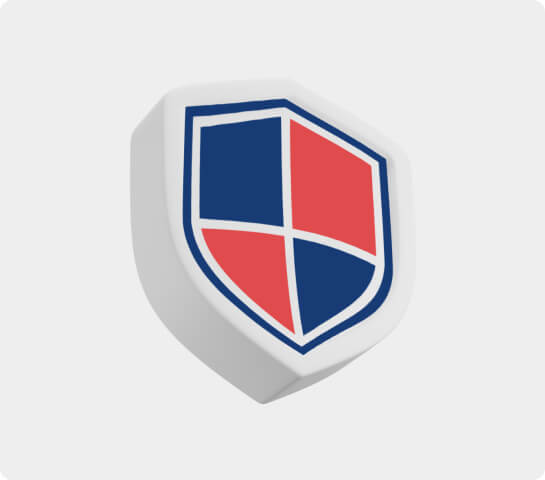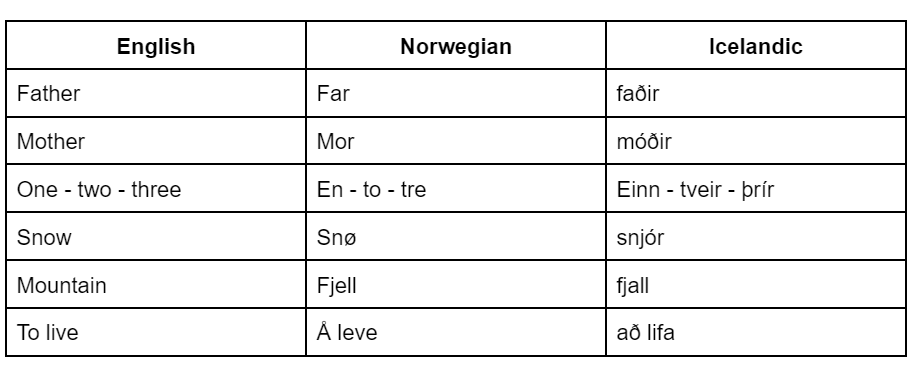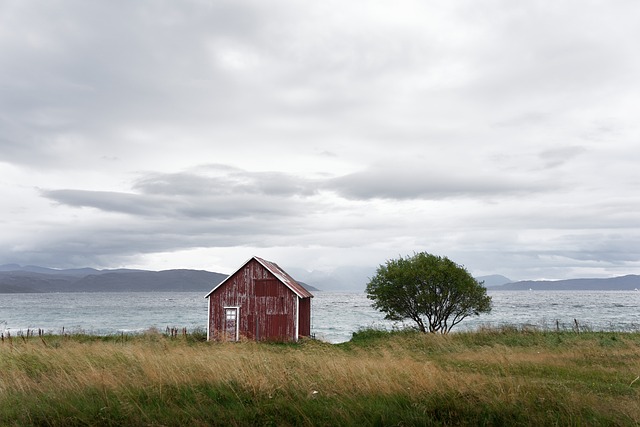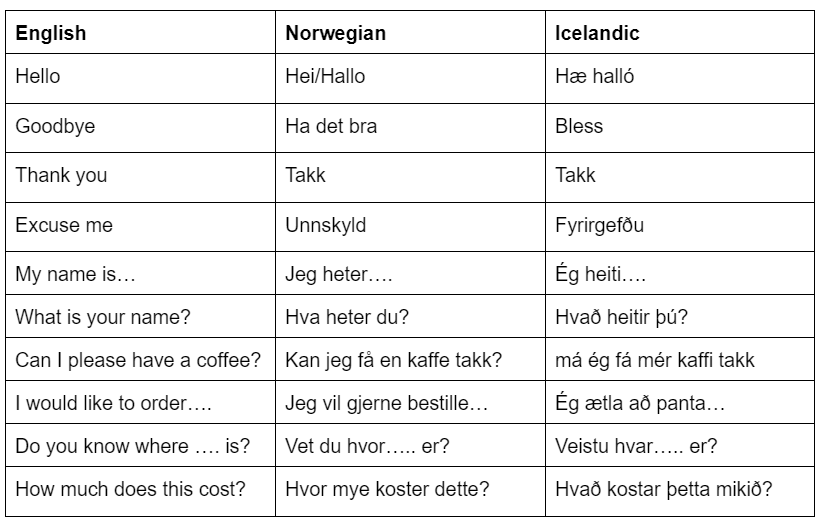Which Languages Are Spoken In Iceland And Norway?
Iceland and Norway are both Nordic countries with much to offer in the way of history and culture. The two countries are the lands of the Vikings, and as such share a common history. But the differences are more plentiful than you might expect, especially when it comes to the language.

Key takeaways
- Norwegian is spoken in Norway
- Icelandic is spoken in Iceland
- They are both North Germanic languages with roots to Old Norse
- English is spoken widely and with high proficiency in both countries
- The two languages are distinct enough to where speakers can’t communicate freely
- Learning some phrases in either language will help with travel or work in the region
What Language Is Spoken In Iceland And Norway?
Many people often put Norway and Iceland in the same category. It is not uncommon to hear people saying that Iceland is part of Scandinavia when it in fact is not. Scandinavia consists of Norway, Sweden and Denmark, while the larger group of Nordic countries is where Iceland lies. While there are some cultural similarities there are far more differences between the two, especially the languages. Norwegians speak Norwegian while Icelanders speak Icelandic.
Language Spoken In Iceland
Icelandic is the official language in Iceland and is spoken by the majority of the population. The language has interesting roots and though it is part of the Germanic language family, it varies wildly from its cohorts. Let’s take a look
Icelandic: The National Language
Icelandic is part of the Germanic language family tree, more specifically the North Germanic branch of that tree. This is the same branch as the other Nordic languages like Norwegian, Swedish and Danish.
These languages all have their roots in the Old Norse language, and as such you’ll find several cognates (words that sound/are spelled similar because of a common root word) between these languages.
However, because of Iceland’s isolated position, the language did not have the same evolutionary trajectory as the other Nordic languages. So while Norwegian, Danish and Swedish might be very close today, Icelandic is not.
In fact, Iceland has preserved much of the old Norse vocabulary that the other Scandinavian languages have moved away from or evolved out of. They also use two letters from the Old Norse that the other North Germanic languages do not, these being Thorn (Þ, þ) and Eth (Ð, ð)
English Proficiency And Other Languages In Iceland
Iceland does not have many inhabitants, just over 370 000 to be more accurate. So you’re not likely to find Icelandic spoken in many other places. As a result, Icelanders have had to learn English in order to communicate with other nationalities. Most people will have a pretty decent grasp of English, with some reports showing that 90% of the population speaks English.
Unlike many other countries, Iceland only has one official language, Icelandic. So the second language that will be natural to learn for most will, by de facto of it being the lingua franca, be English.
Learning Icelandic: Opportunities And Challenges
Even though it is a Germanic language, Icelandic is not at all easy to learn. Of course this depends on what language you may already speak, but we’re assuming you speak English since you’re reading this.
The US department of state ranks Icelandic as a category three language in terms of difficulty. There are only four categories. So you must assume that plenty of time will be needed in order for you to learn Icelandic. The estimated time needed in order to reach professional level proficiency in Icelandic is 1100 hours of study for English speakers.
While learning any language will come with its own set of challenges, Icelandic has two that are especially hard to overcome. Firstly, pronunciation. Icelandic words are often long, and the vowels will be strange and unfamiliar to new learners. Additionally, the conjugation is quite hard to get a hold of and is ripe for confusion and frustration.
Language Spoken In Norway
Norwegian is one of the official languages spoken in Norway, but by far the most spoken one. There are two official forms of written Norwegian, bokmål and nynorsk, but with all the distinct dialects in the country, spoken Norwegian will most often be something in between these two.
Norwegian: The National Language
Norwegian is a result of several other languages. First, like Icelandic, it has its roots in Old Norse, thereby the reason for the few similarities between the two.
Secondly, Norway has been subject to other nation’s rule for centuries. First, there was Denmark, which ruled over Norway for over 400 years. Naturally this affected the language. And while Norwegian and its various dialects remained distinct from Danish, the overlap is apparent. In fact, today’s written Norwegian is very close to written Danish.
After Norway gained independence from Denmark in 1814, we quickly entered into a union with Sweden. So Swedish then affected the Norwegian of the time. When we finally left the union in 1905, the influence from Danish and Swedish had done its work, and the Norwegian language had become sort of a middle ground between the two.
One thing that makes Norwegian interesting is the sheer number of various dialects. We have two official versions of written Norwegian in Norway. Bokmål and Nynorsk. Nynorsk is a kind of mix between all the various dialects that had emerged under Danish rule. And as such, you won’t find many people that speak Nynorsk exactly how it’s written.
Rather, you’ll find many dialects with aspects of Nynorsk. These dialects vary widely between various regions of Norway, and some people might even have a difficult time understanding some dialects.
English Proficiency And Other Languages In Norway
Like Iceland, Norway has a relatively small population, with around 5 million. So again, rather than expecting everyone else to learn Norwegian, Norwegians learn English.
It’s estimated that around 80-90% of Norwegians are able to communicate in English with ease. This number depends on where you find yourself, with the bigger cities having a higher level of English proficiency.
Other than that, Norway has another official language in Sami, which is spoken by the indigenous population. The level of immigration has also increased since we found oil in the 1970’s, and as such people with Polish, Pakistani, and European backgrounds also have brought their languages and cultures into the mix.
Learning Norwegian: Opportunities And Challenges
Norwegian is a category 1 language according to the US department of state. This category is far easier for English speakers to get a handle on. With only about 600 hours of class hours needed to reach professional level proficiency in the language.
But even with its relative ease, Norwegian will still require time and effort to learn. Some tips are to immerse yourself in the language as much as possible by consuming Norwegian language media like TV, Podcasts or books. Invest time every day to learn and go over things so you don’t forget. And most importantly of all, find others to speak with. Try out our conversation classes here to find others to learn Norwegian with while getting help and guidance from your native speaking teacher.

Tired of scrolling through the internet for Norwegian grammar?
Start an organised Norwegian course now.
In order to learn fluent Norwegian, we need to repeat it and speak it several times before our brain learns it.
Learn that in our courses!
Comparing Icelandic And Norwegian
As both Icelandic and Norwegian belong to the North Germanic branch of the Germanic language tree, it is natural to compare and contrast the two. Can speakers of these languages understand each other? Just how similar are they? Let’s explore!
Do They Speak Norwegian In Iceland?
Since Norwegian is not an official language in Iceland, you shouldn’t expect to find too many Norwegian speakers there. Nevertheless, since both languages are North Germanic, there are several similarities that make some cross communication possible.
Similarities between Icelandic and Norwegian
Since Norwegian is not an official language in Iceland, you shouldn’t expect to find too many Norwegian speakers there. Nevertheless, since both languages are North Germanic, there are several similarities that make some cross communication possible.
Similarities between Icelandic and Norwegian
Both are S-V-O languages. This means that the usual structure of sentences is first the subject, followed by the verb and then the object. But this word order is flexible in both languages and depends on a myriad of variables.
Grammatically, we can find other similarities, like for instance in noun genders. Both have three genders, masculine, feminine and neutral. Verbs can also be either strong or weak in both Norwegian and Icelandic, and the past tense of verbs is changed by altering the stem of the verb itself.
It is also common in both languages that inflection of adjectives has to match both the gender of the noun they describe, and also whether they are neutral or plural.
There are also many lexical similarities between the two. Just take a look at the chart below and see if you can’t spot the similarities between some common words.

There are many many more in all word groups, and it’s easy to see that while they aren’t able to communicate in their respective languages, Norwegians and Icelanders are able to grasp some of what the other is saying.
Differences between Icelandic and Norwegian
However, there are many more differences between these languages.
Firstly, pronunciation is more archaic in Icelandic, with closer ties to Old Norse. Many of the same sounds used still remain in Icelandic, like the th sound, that Norway has done away with.
This also applies to much of the vocabulary. Additionally, Norway has several loanwords from Swedish, Danish and English that do not exist in Icelandic.
In terms of grammar, Norwegian is much simpler. It only has two cases, while Icelandic has four. You can bet that learning Norwegian grammar is much easier than learning Icelandic for an English speaker as the two are more closely related.
Lastly, spelling. Norwegian has evolved over the years to a more phonetic system. Icelandic on the other hand, is still spelled much in the same way as was common in Old Norse.

Can You Understand Icelandic If You Speak Norwegian?
You might think that since Norwegians can communicate easily with Swedes and Danes, that they might also be able to do so with Icelanders, but this is not the case.
Due to the differences in pronunciation, vocabulary and grammar, Norwegian speakers will not be able to understand Icelandic without training or practice, though they might understand a word or sentence here or there.
What Are Some Practical Tips for Travellers and Expats in Scandinavia?
If you’re planning on travelling around Scandinavia, particularly in Norway or Iceland, you may have some questions about how much of the languages, if any, you should learn before heading out. We’ve made a little handy list for you here to get started.
Navigating Iceland And Norway With English
First of all, English is spoken by almost everyone in both countries. So if you don’t want to learn a single word of either Icelandic or Norwegian, you can still expect to get by at any restaurant, hotel or bar you may happen upon.
However, if your plan is to work in either of these countries, you would be wise to learn some of the language. It will not only help you build relationships, but it shows your employer you are making an effort to integrate, that you are serious about your work and life in Iceland or Norway, and that you are a hard worker. But it will still be possible to get most of your work done in English, but not recommended. This of course depends on the job.
You may have heard that Norwegians and Icelaners have a reputation for being a bit closed off. This may very well be true until you get a few beers in us. Then we’re the friendliest bunch of people you’ve ever met. But even though we speak English well, we prefer our native tongue. So, when Norwegians or Icelanders sober up, they might be a bit uncomfortable speaking English. For this reason, learning some basics in either language will help you build deeper and more meaningful relationships in these countries.
The Value Of Learning Basic Icelandic And Norwegian Phrases
So you’ve decided to learn some basic phrases in both languages to help you get started. This will help you get more out of your travels. Not only will you be able to connect better with the locals, but you’ll gain a new appreciation and understanding for the history and culture of the places you go.
Here are some essential phrases in Norwegian and Icelandic for you to use in your travels.

Reach fluent Norwegian in only 4 months
Find out your level and how to get started now
Did you know that you don’t need all the Norwegian grammar to speak Norwegian? Just a small part of it. In our classes we use just the necessary grammar. Find out what level you are, and what classes you can take to speak fluently.
Frequently Asked Questions About The Spoken Language In Iceland And Norway?
What Language Is Spoken In Iceland And Norway?
Norwegian is spoken in Norway and Icelandic is spoken in Iceland. These languages are similar to each other but also very different.
Can You Understand Icelandic If You Speak Norwegian?
No, while there are some similarities, Icelandic and Norwegian are far enough apart that speakers won’t be able to communicate without training and practice.
Learn fluent Norwegian in 4 months. Start today.
Did you know that you don’t need all the grammar to speak fluent Norwegian? In our classes we focus just on the necessary vocabulary. So you can learn 3 times faster.
